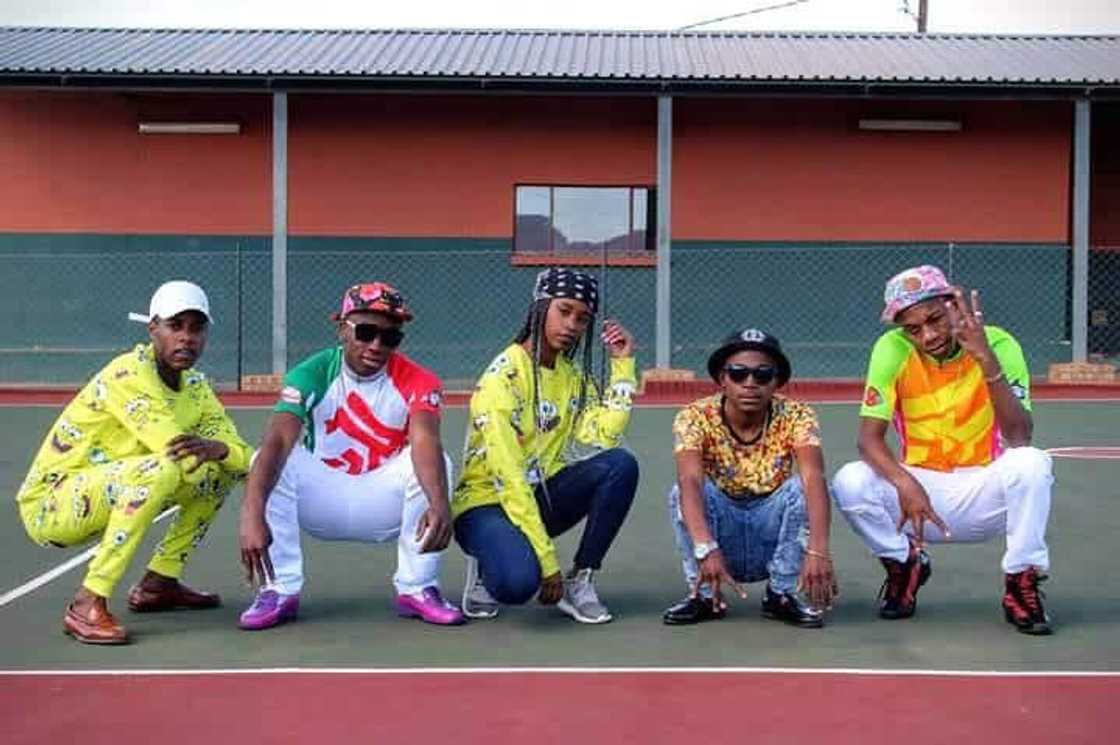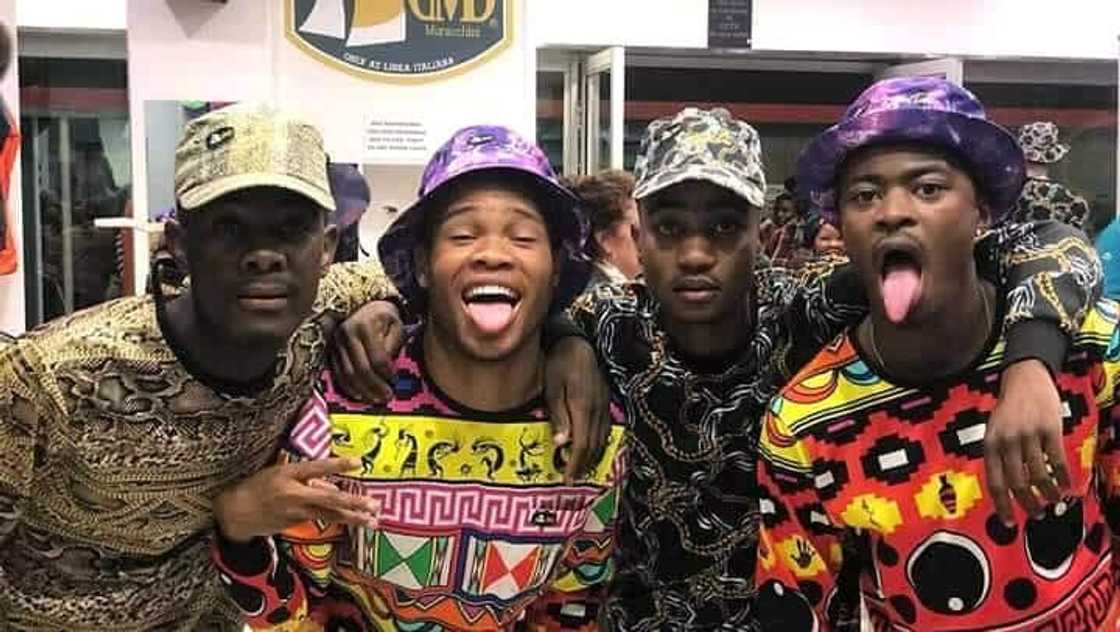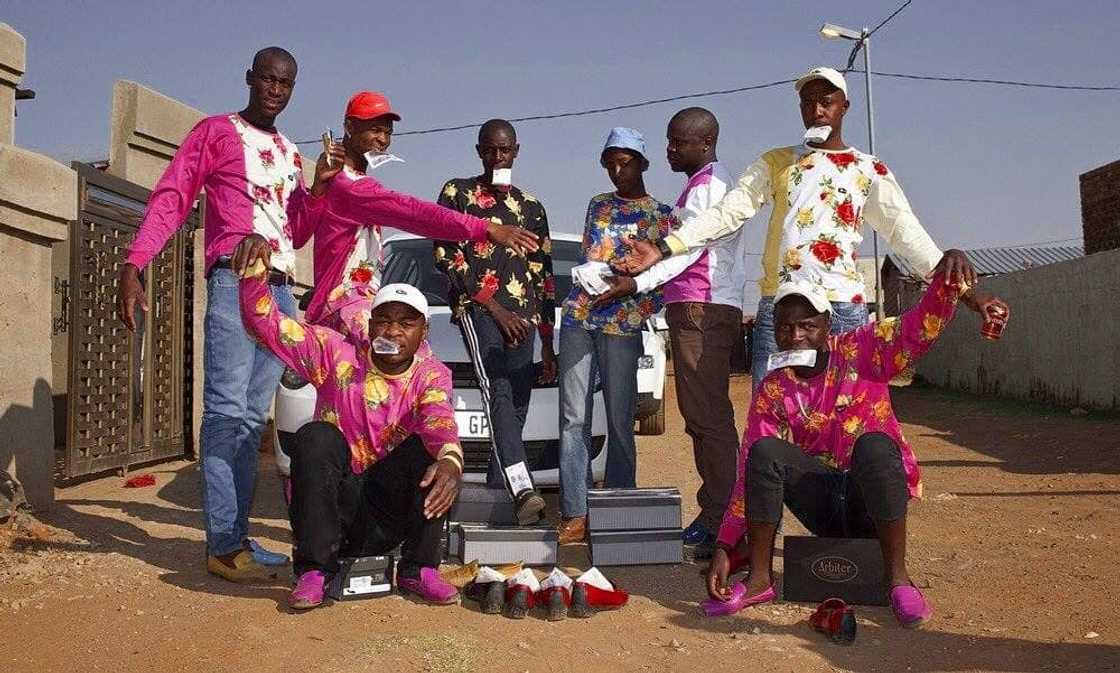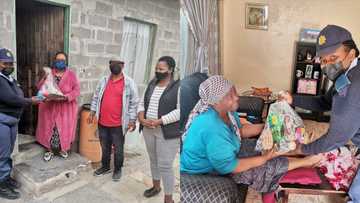Izikhothane lifestyle: All you need to know about the SA material culture
Izikhothane, also known as Skhothane culture, is one of the subcultures in South Africa characterised by people buying expensive things and showing them off. However, it infuses a twist of wastefulness. A person or a group buys expensive designer clothes, shoes, phones, alcohol and jewellery. Afterwards, they meet a rival group at a designated spot, usually with ample space where people can watch them.

Source: Facebook
One of Izikhothane's members' aims is to belittle one another by showing their expensive possessions. It involves a great deal of dissing and cussing, and the groups mutilate their expensive wears to prove that they are richer.
They could trample on, tear, and burn their expensive clothes, shoes, and money. At the same time, they could choose to wash their hands with bottles of expensive wines and alcohol instead of drinking the content.
What is the Izikhothane culture?
It is a culture that originated in the South African society at the beginning of the millennium, although its likeness had always existed in different cultures in South Africa. The concept is simply based on showing off one’s wealth.

Read also
Lost in translation: UK woman shows Cape Town mansion and 2 other expats rubbing SA the wrong way
However, as a culture, it is taken more seriously. Different clans in the country come out on an agreed date and try to outdo themselves in proving their net worth.
Aspects to the Izikhothane culture
There are different aspects to the culture apart from Skhothane clothes. Each of them is explained below:
Songs
Izikhothane songs are played during the meetings of rival clans. The songs bring a sense of party to the whole event while the family onlookers watch the different Skothanes prove their worth. In addition, some members of the various groups are musicians, and the group helps them showcase their artistic creativities.
Dance
Izikhothane dance-off is a part of this flamboyant culture. The rival groups do not just walk about while showing off their expensive properties. Still, a group member does the Skhothane dance around and towards their rival groups, sometimes in an annoying but beautifully choreographed manner.
If you download Izikhothane videos on the internet, you will get to know more about the peculiarities of the culture and how dancing is a big part of being a member.

Read also
Dignity in labour: Bricklayers at work show their happiness, dance as they shovel sand in video
Funeral
Although the culture promotes happiness and the pursuit of success, the members understand that everybody dies. As such, Izikhothane funeral is usually a happy one with lots of dancing and clapping.

Source: Facebook
Prayers
Another important aspect of this youthful South African lifestyle is the Izikhothane prayers. But, unfortunately, it is usually a bastardised version of The Lord’s Prayer.
Members of the group say their prayers by asking the divine to afford their lavish lifestyles. They also pray to overcome the temptation to buy and wear fake stuff, usually known as fong kong. Below is an example of a typical Skhothane prayer.
Our Carvella, who art in Italy
Hallowed by Thy Arbiter
Thy use Petrol
Thy will be done,
On Ultra Milk as it is on Red Bull
Give us this day our daily DMD
And forgive us for falling for cheap stuff,
As we forgive those who buy fake items
And lead us not into Mr Price,
But deliver us from Richness
For thine is the RossiModa, the DH, and the UZZI,
Now and forevermore (amen).
Kenny Kunene and Izikhothane
Kenny Kunene is another celebrity associated with the culture. The 50-year old wealthy businessman is known for his controversially lavish lifestyle. Although he is married with kids, Kunene once boasted of having 15 girlfriends.
If you tell the ex-convict cum politician that the girls are only after his money, he will tell you about his girl-catching abilities when he was still a poor high school teacher. His lifestyle includes throwing expensive parties where guests can eat their Suchi off the bodies of half-naked women.
Material Culture in South Africa
The Material Culture in South Africa has Tshepo Pitso, also known as Don Dada, as its arrowhead. The group members are known for their cool and expensive outfits whenever they step out in public in addition to their captivating dance moves. So, naturally, this has led to people asking, "What does Don Dada do for a living?"
Don Dada is a brand ambassador, graphic designer, and artist. Also, he is one of the most popular fashion influencers in South Africa. Dada always wanted a lovely dress from a young age even though his family was impoverished.

Source: Facebook
A part of Izikhothane's misconceptions is what the group stands for. So, what does Skhothane mean in English? The term describes hustlers who try to make a lot of money to lavish on their materialistic lifestyle. As such, those against it think it is expensive in Afrikaans.
The Material Culture reality show aired on Dstv in 2019, featuring members of the group and their attempts to change the pessimistic public perception of the culture. Now that you have learned how the Izikhothane culture operates, what do you think of it? New Skhothane groups like South Africa Material Culture are trying to take the culture globally by reinventing how the public perceives it.
READ ALSO: Tswana culture, people, food, language, traditions, ceremony, dance and traditional attire
Tswana culture is a significant aspect of Botswana history. As published on Briefly.co.za, since the tribe has tripled over the years, making them a substantial population in the country, it is only right to understand the Tswana culture.
There are four important ethnic groups in the Black South Africans, including the Nguni, the Sotho-Tswana, Shangaan-Tsonga, and the Venda.
Source: Briefly News




